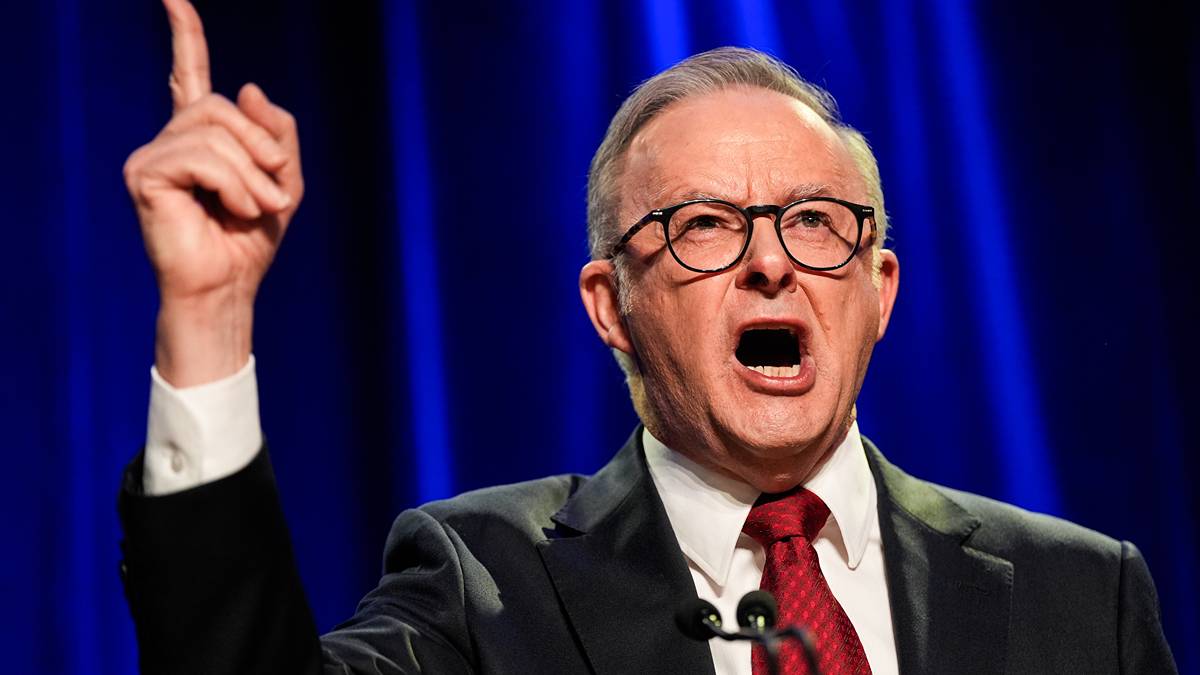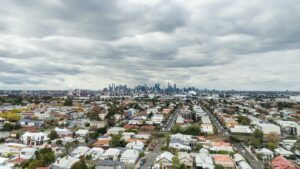Albo 2.0 and the fallout for investors

The only way is up… for super taxation, it seems. Pic via Getty Images
They say investors will always seek “certainty”. Well, here’s a version of it: the Albanese government has been returned to power and we have a very good idea of what it will seek to achieve in the months to come.
For investors, the issue is to digest what is going to happen – for sure – along with what may come to pass down the track as the new administration seeks to exercise its exceptional parliamentary power.
A property price pop
It’s not often we can predict with accuracy an investment class where prices are going to rise inside a set time period. But the looming impact of the government’s signature First Home Guarantee policy is indisputable
The essentials of the First Home Guarantee program are that, on January 1, the government is to release a first homebuyer initiative in which anyone can buy their first home with a 5 per cent deposit.
Initial estimates suggest that this scheme will attract at least 80,000 buyers, but nobody really knows how many will use the program – it could be a much bigger number. (There are about 130,000 first-home buyers in the market each year.)
But the nature of the new scheme is that buyers using the scheme can’t purchase until January. Once the scheme opens, those buyers will all move at the same time … in the same neighbourhoods! (And generally seeking homes costing $500,000-$1m.)
This is not just theory, it happened in 2009, when the Rudd government doubled cash incentives for first-home buyers in the depths of the GFC: For residential investors, the writing is on the wall: Don’t sell before January, and if you are buying, then get in before the rush.
HECS help
A key election policy of the ALP was the 20 per cent discount on HECS-related student debt. There is significant merit in reforming student debt because the move by the Morrison government to reprice education was shortsighted, narrowing the skills base of the future.
The news here is not so much the free kick for salaried professionals with high student bills, but the way in which this measure will stimulate residential prices.
Keep in mind, it coincides with another ALP measure that is to allow the banks to ignore student debt when calculating mortgage service payments. At a stroke, this means that a newly graduated generation will suddenly have increased borrowing capacity.
Coupled with the widening of the First Home Guarantee – not to mention lower mortgage rates – it’s only a question of how much the first-home buyer strata of the market will lift.
As Louis Christopher of property research group SQM said this week, prices in first-home buyer neighbourhoods could rise between 8 per cent and 15 per cent.
CGT could be curtailed
Speculation continues over what the government may do in terms of two key tax issues – negative gearing and capital gains tax.
As financial adviser Will Hamilton told the Money Puzzle this week: “Just because the government has said it would not introduce new taxes, it does not stop them changing existing measures.”
On this basis, the tax in the spotlight is clearly on capital gains tax (CGT) – specifically, the 50 per cent concession on the tax on assets held for more than one year. There has been efforts in the past to reduce this discount to 25 per cent. This proposal could easily reappear in the months ahead.
Market interference
Shane Oliver, chief economist at AMP, said this week: “The impact of the new government on the investment markets is likely to be minor.”
That is probably true for the ASX, except where the government’s interventionist style directly affects an unlucky listed company.
A case in point would be the ASX-listed miner Lynas Rare Earths. CEO Amanda Lacaze has openly criticised the government’s plans to stockpile rare earths, saying: “It seems to be the Labor Party proposes to buy rare earth products at uneconomic prices.”
She later added: “We in business wade into politics at our peril.”
She may not be the last CEO to call foul on market intervention from Anthony Albanese’s re-elected government.
A super tax shocker
The worst policy so far relating to investors belongs inside superannuation. The government plans to tax unrealised gains in super, and that plan just got a boost with the reshaped Senate indicating it will merely be a matter of the government doing a deal with the Greens to get the legislation passed.
As fund manager Geoff Wilson has said recently, it’s not so much the arrival of a new tax – an extra 15 per cent on amounts over $3m – that is the issue, but the nature of a tax based on unrealised – or paper – gains that is the sting. (There is already a 15 per cent tax on amounts over $1.9m.)
If this shocker new tax gets up, it could easily lead to the taxing of unrealised gains becoming more widespread in the system.
What’s more, the opening position of the Greens is that if the government wants support for the tax, it must reduce the threshold from $3m to $2m – a move that would immediately widen the tax net to more than 100,000 investors. Without inflation indexing – which is not in the plan – the number in the tax net would become much higher with each passing year, until the reality of an effective 30 per cent tax on super earnings would become commonplace.
James Kirby hosts the twice-weekly Money Puzzle podcast.
This article first appeared in The Australian.
Related Topics
SUBSCRIBE
Get the latest breaking news and stocks straight to your inbox.
It's free. Unsubscribe whenever you want.
By proceeding, you confirm you understand that we handle personal information in accordance with our Privacy Policy.








